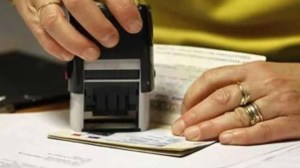Justice under trial
The cumulative follies of the criminal justice system rest ultimately on the shoulders of that faceless Indian who goes by that curious, alm...

The cumulative follies of the criminal justice system rest ultimately on the shoulders of that faceless Indian who goes by that curious, almost Kafkaesque, sobriquet of “undertrial”. It is this individual who is paying for our inept policing, our tortuous process of prosecution, and the fact that we have only some 13,000 judges to cater to a population of 1.2 billion. An estimated 200,000 “undertrials” find themselves in this uncertain never-never land—all in the name of justice.
It is criminal that successive governments have allowed the issue to remain unaddressed. In 1999, the Supreme Court sought to make a case study of Ajay Ghosh, who remained an “undertrial” for 38 years. He had in fact served the maximum term he was liable to serve if had been found guilty twice over, and with a decade to spare! The apex court saw Ghosh’s incarceration as a violation of his constitutional right to life. The NHRC reported subsequently that 70 per cent of those in Indian jails were “undertrails”— and in some states like Uttar Pradesh, the figure could even be as high 90 per cent. That it took 11 years to even modestly reform the Code of Criminal Procedure to allow the release, on personal bonds, of those serving one-half of the maximum period of imprisonment they are liable to serve if convicted, indicates not just the callousness but the shortsightedness of the system. It costs four billion rupees every year to keep this inept system going and there are also crucial security issues involved when the average jail today holds 400 per cent more than their stated capacity.
Now that the Union home ministry has okayed this reform, we need to get it onstream immediately. This needs to be accompanied by other institutional correctives. The need to fill judicial vacancies has been highlighted repeatedly in these columns, and the government’s ambiguity on financing fast track courts must end. A system that locks up people and throws away the key can have no place in a liberal, modernising state.
Photos





- 01
- 02
- 03
- 04
- 05

























